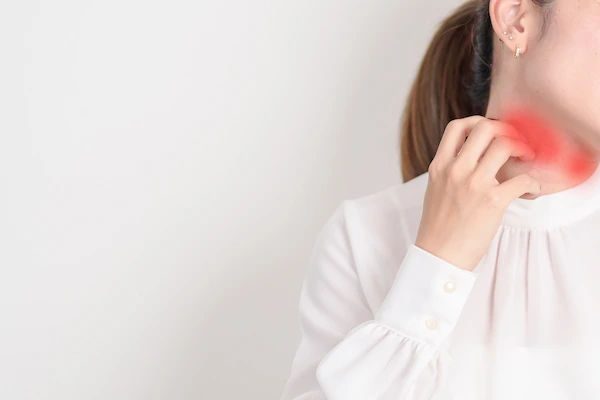Understanding Patch Testing Procedures and Costs
Learn about patch testing for skin allergies, including its procedure, benefits, and costs in India. Understand when to consider it, how it works, and tips for managing allergic reactions.

Written by Dr. Dhankecha Mayank Dineshbhai
Reviewed by Dr. Mohammed Kamran MBBS, FIDM
Last updated on 2nd Sep, 2025

If you’ve been struggling with unexplained skin rashes, itching, or redness, you may be dealing with an allergic reaction. Patch testing is a simple and effective way to identify what’s causing your skin problems. This guide will help you understand what patch testing is, how it works, and what you can expect in terms of costs.
What Is Patch Testing?
Patch testing is a diagnostic procedure used to identify specific allergens (substances that cause allergic reactions) that may be triggering your skin issues. Unlike blood tests or prick tests, which check for immediate allergic reactions (like food allergies or hay fever), patch tests help detect delayed allergic reactions that take 48–96 hours to appear.
Common Conditions That May Require Patch Testing
- Contact Dermatitis – Red, itchy skin caused by direct contact with an irritant (e.g., metals, fragrances, or chemicals).
- Eczema Flare-Ups – If your eczema worsens due to unknown triggers.
- Chronic Skin Irritation – Persistent rashes with no clear cause.
How Does Patch Testing Work?
Before the Test
- Your doctor will review your medical history and symptoms.
- You may need to stop certain medications (like antihistamines or steroids) before the test, as they can interfere with results.
During the Test
1. Application – Small patches containing common allergens (like nickel, latex, or fragrances) are placed on your back or arm.
2. Wearing the Patches – You’ll need to keep them dry and in place for about 48 hours.
3. First Reading (48 Hours Later) – The doctor removes the patches and checks for early reactions.
4. Second Reading (72–96 Hours Later) – A final check is done to confirm delayed reactions.
After the Test
- If a reaction occurs (redness, swelling, or blisters), your doctor will identify the allergen and advise avoidance strategies.
- You may receive a list of products to avoid or alternatives to use.
What Does Patch Testing Cost?
The cost of patch testing can vary depending on:
- Location & Clinic – Prices differ between hospitals and dermatology clinics.
- Number of Allergens Tested – Basic tests cover 20–30 allergens, while extended panels may test 80+.
- Insurance Coverage – Some health plans cover patch testing if medically necessary.
Estimated Costs in India
- Basic Patch Test – ₹2,000–₹5,000
- Comprehensive Test – ₹6,000–₹12,000
- Note: Check with your insurance provider or clinic for exact pricing.
Consult an Dermatologist for the best advice
Tips for Managing Skin Allergies
If your patch test reveals an allergy, here’s how you can manage it:
1. Avoid the Allergen
- Read product labels carefully (e.g., soaps, detergents, cosmetics).
- Choose hypoallergenic or fragrance-free alternatives.
2. Protect Your Skin
- Wear gloves when handling irritants (like cleaning chemicals).
- Use barrier creams if you work with metals or harsh substances.
3. Moisturize Regularly
- Dry skin worsens irritation; use a fragrance-free moisturizer daily.
4. Consult a Dermatologist
- If symptoms persist, a specialist can recommend medicated creams or treatments.
When Should You Consider Patch Testing?
- If over-the-counter creams don’t help your rash.
- If you suspect a specific product (like jewelry or cosmetics) is causing irritation.
- If you have recurring eczema or dermatitis without a clear cause.
Book a Patch Test with Apollo 24|7
If you’re experiencing unexplained skin reactions, consider booking a patch test with a dermatologist. Apollo 24|7 offers convenient online consultations and lab tests. You can:
- Consult a dermatologist via video call.
- Schedule a patch test at a nearby Apollo clinic.
- Get personalized allergy management tips.
Get Your Health Assessed
Final Thoughts
Patch testing is a safe, reliable way to uncover hidden skin allergies. By identifying triggers, you can take control of your skin health and avoid unnecessary discomfort. If you suspect an allergy, don’t hesitate to seek professional advice; your skin will thank you.
Consult an Dermatologist for the best advice
Consult an Dermatologist for the best advice

Dr Ritika Shanmugam
Dermatologist
9 Years • MBBS, MD (Dermatology, venereology, Leprosy)
Bangalore
Apollo 24|7 Clinic - Karnataka, Bangalore

Dr. K Chetana
Dermatologist
10 Years • MBBS, MD ( Dermatology)
Hyderabad
Apollo 24|7 Clinic, Hyderabad

Dr Usha B K
Dermatologist
4 Years • MBBS,MD (Dermatology, Venereology & Leprosy), DNB (Dermatology, Venereology & Leprosy), Fellowship in Trichology
Bangalore
Apollo 24|7 Clinic - Karnataka, Bangalore
Dr. Kavitha Killaparthy
Dermatologist
23 Years • MBBS,DIPLOMA(DERMATOLOGY,VENEREOLOGY,LEPROSY)
Hyderabad
JDS Skin & Hair Clinic, Hyderabad
Dr. Mayuri Jain
Dermatologist
11 Years • MBBS, MD Dermatology , Venereology & Leprosy
Delhi
Dr Mayuri Jain Clinic, Delhi
Consult an Dermatologist for the best advice

Dr Ritika Shanmugam
Dermatologist
9 Years • MBBS, MD (Dermatology, venereology, Leprosy)
Bangalore
Apollo 24|7 Clinic - Karnataka, Bangalore

Dr. K Chetana
Dermatologist
10 Years • MBBS, MD ( Dermatology)
Hyderabad
Apollo 24|7 Clinic, Hyderabad

Dr Usha B K
Dermatologist
4 Years • MBBS,MD (Dermatology, Venereology & Leprosy), DNB (Dermatology, Venereology & Leprosy), Fellowship in Trichology
Bangalore
Apollo 24|7 Clinic - Karnataka, Bangalore
Dr. Kavitha Killaparthy
Dermatologist
23 Years • MBBS,DIPLOMA(DERMATOLOGY,VENEREOLOGY,LEPROSY)
Hyderabad
JDS Skin & Hair Clinic, Hyderabad
Dr. Mayuri Jain
Dermatologist
11 Years • MBBS, MD Dermatology , Venereology & Leprosy
Delhi
Dr Mayuri Jain Clinic, Delhi


